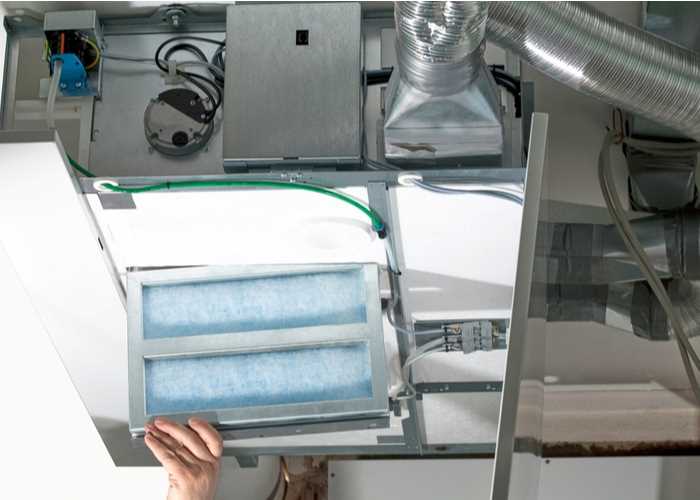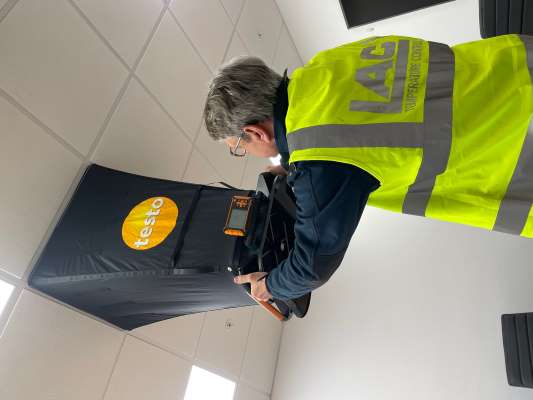If you’ve read our introductory guide to mechanical ventilation with heat recovery (MVHR), you’ll know these systems come with multiple benefits, including improved air quality, lower energy costs and carbon emissions, and controlled humidity that protect the fabric of a building. But as with any mechanical system, it takes proper maintenance and servicing to ensure these benefits are ongoing.
Without due care and attention, dirt and bacteria can build up within the system overtime, impeding airflow and introducing pollutants into the incoming air supply. It also means the system has to work harder, compromising its efficiency, causing noise issues, and throwing it off balance.
Thankfully, if you’ve had your MVHR system designed, installed and commissioned by an experienced professional, maintaining it will be a fairly simple process - it’s just a matter of routine cleaning and regular service visits by a qualified HVAC engineer.
There are a few straightforward cleaning jobs that will help ensure your MVHR continues to work as it should. You can do these yourself, but if you’re in any doubt at all, or suspect a system fault, be sure to contact a professional.
You should also be sure to read the user guide from the manufacturer before attempting any system maintenance.

This is essential to good MVHR maintenance, since the filters are responsible for cleaning the air that enters the building.
Make sure your system is turned off and disconnected from the mains before removing filters, clean off any dirt build up with a vacuum, then either soak or rinse down with a shower head. Leave them to dry out thoroughly before placing them back in the unit.
How often your filters need cleaning will depend on the location of your property, and the pollution levels in the outdoor air. Check them regularly, and if they look like they need cleaning, they do.
They’ll also need replacing at regular intervals. Again, this depends on where you’re located, and their general condition - but most systems will let you know when replacement filters are needed.
Along with filters, it’s important to keep vents free from dust and dirt. These can be easily removed and cleaned down with a brush, vacuum and/or damp cloth.
With the grilles off, you can inspect the entry points of your ductwork. If necessary, this can also be cleaned out by reaching inside with a vacuum cleaner.
Obstructions to airflow such as fallen leaves should be removed as and when needed to ensure your system functions efficiently.
You should also check for, and clear away, anything else that may compromise airflow, such as overgrown hedges or waste materials. Essentially, keep the area around your external vents as clear as possible.
If you feel confident in doing so, you can also clean the system’s heat exchange and fans, however, it’s best to have this done by a professional - particularly in the case of fans, as these are accurately balanced to meet the ventilation needs of the property.

To ensure optimum performance and efficiency, we recommend an annual service of your MVHR system.
During a routine service, our qualified engineers will:
Our service packages are flexible, and we’re more than happy to put together a routine maintenance plan to suit your needs.
